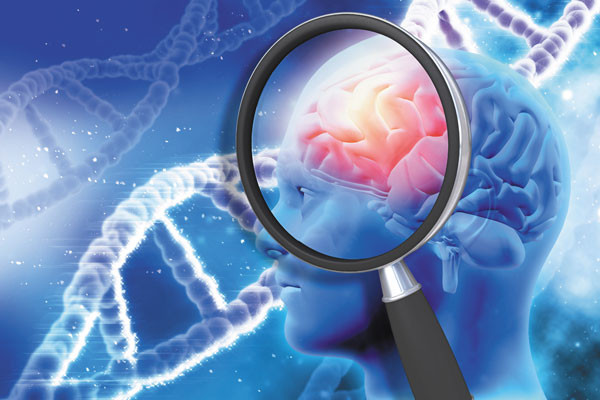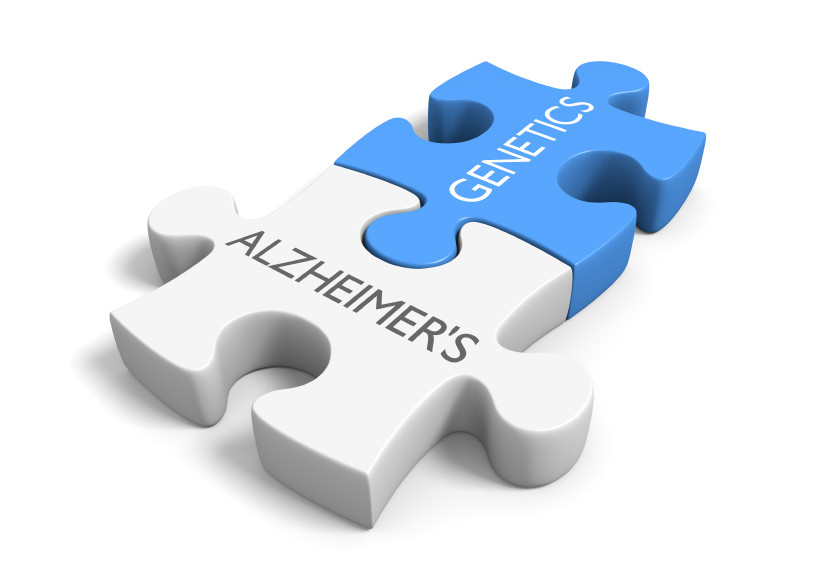
Avocado nutrition: Health benefits and easy recipes

Swimming lessons save lives: What parents should know

Preventing and treating iliotibial (IT) band syndrome: Tips for pain-free movement

Wildfires: How to cope when smoke affects air quality and health

What can magnesium do for you and how much do you need?

Dry socket: Preventing and treating a painful condition that can occur after tooth extraction

What happens during sleep �� and how to improve it

How is metastatic prostate cancer detected and treated in men over 70?

Could biofeedback help your migraines?

What is autism spectrum disorder?
Heart Health Archive
Articles
The genetic link between Alzheimer's and heart disease
Knowing you have a gene variant that may raise your risk can be distressing. But new research reveals a silver lining.
A particular gene variant that affects cholesterol levels in the blood may influence a person’s risk of both Alzheimer’s and heart disease.
Image: kirstyparueter/Thinkstock
Alzheimer's disease strikes fear in people's hearts, as it gradually erodes a person's ability to remember, think, and learn. There is no cure, and available treatments alleviate symptoms only temporarily. Yet while an estimated 5.3 million Americans currently have Alzheimer's disease, this brain disorder is far less common than heart disease. More than 85 million people in the United States are living with some form of cardiovascular disease or the aftereffects of stroke, which also affects brain function.
The heart attack gender gap
Heart attacks strike men at younger ages than women. But survival rates are worse in women. Why?
Compared with men, women are less likely to recognize and act upon the symptoms of a heart attack.
Image: zaganDesign/Thinkstock
Imagine someone in the throes of a heart attack. If you picture a man clutching his chest in agony, that's understandable. At younger ages, men face a greater risk of heart disease than women. On average, a first heart attack—the most common manifestation of this prevalent disease—strikes men at age 65. For women, the average age of a first heart attack is 72.
Ask the doctor: Ongoing treatment for atrial fibrillation
Q. Last year, I was diagnosed with atrial fibrillation and started taking an anti-clotting drug to lower my stroke risk. But my heart is now back in a normal rhythm. Why is my cardiologist keeping me on the drug?
A. During a bout of atrial fibrillation, or afib, the heart's upper chambers (atria) quiver erratically instead of making normal, steady contractions. This common heart rhythm disorder takes many different forms. While some people seem to have a single, isolated episode of afib, others have persistent afib, which lasts longer than a week. Common symptoms include a rapid, irregular heartbeat; a fluttering or "thumping" sensation in the chest; and feeling weak, dizzy, breathless, or fatigued.
Ask the doctor: How could gum disease affect the heart?
Brushing and flossing may benefit your heart as well as your gums.
Image: zimmytws/Thinkstock
Q. I have mild gum disease and recently heard that this might increase my risk of heart disease. How?
Smart chocolate choices for a healthy heart
The advice to eat chocolate should be taken with a grain of salt.
Image: Leszek Kobusinski/Thinkstock
Like bees swarming a melting candy bar, the media buzz around the purported health benefits of chocolate has been hard to ignore. The possibility that such a sumptuous treat might actually be good for your heart is very sweet news, indeed.
But there's a lot more to this story that we need to understand before going hog wild in the candy aisle, says Dr. Howard Sesso, associate professor in the division of preventive medicine at Harvard-affiliated Brigham and Women's Hospital. "Simply recommending that people eat dark chocolate as a way of improving health is very misleading, since chocolate products tend to have a significant amount of fat, sugar, and calories." Instead, he and colleague Dr. JoAnn Manson are embarking on the Cocoa Supplement and Multivitamin Outcomes Study (COSMOS), a four-year trial involving 18,000 participants that is designed to tease out the intricacies of chocolate's health-promoting nutrients ().
Dietary supplements for cholesterol: Are any worth a try?
Various herbs and other supplements have been touted for their ability to improve cholesterol levels. Here's what the research shows �� and doesn't show �� about some of the best-known products.
Hawthorne.��The leaves, berries, and flowers of this plant are used to make medicine that was traditionally used to treat cardiovascular diseases. It may lower cholesterol by increasing the excretion of bile and decreasing the body's production of cholesterol.��Verdict: It may possibly help.
A twist on the genetic link between Alzheimer’s and heart disease
Although the two conditions seem unrelated, Alzheimer’s and heart disease actually share a genetic link. People who have a certain gene variant have both a somewhat elevated heart disease risk and a significantly elevated Alzheimer’s risk. Fortunately, a recent study has suggested that when people know they have this variant, they’re more likely to make healthy lifestyle choices that benefit their heart �� and what’s good for the heart is good for the brain.
Be still, my beating heart
Heart palpitations can be alarming, but are they dangerous?
Do you ever feel that your heart is pounding, skipping, or racing so fast that you're certain it will explode from your chest at any moment? That's how many people describe the experience of heart palpitations. In the most literal sense, palpitations are simply an awareness of your heart beating, says Dr. William Stevenson, professor of medicine at Harvard-affiliated Brigham and Women's Hospital. The most familiar trigger for palpitations is heavy exercise, such as when you pedal extra hard to summit the last computerized hill in your indoor cycling class.
Skipping a beat
Although common, palpitations alarm many people, in part because they tend to come on unexpectedly. Isolated palpitations typically occur when a small rush of adrenaline courses through your body, causing your heart to beat more forcefully than usual. These surges can be generated by a strong emotion such as excitement, fear, or anger. They also can come on after consuming a stimulant such as caffeine.
The new federal dietary guidelines: Are they good for your heart?
When it comes to preventing cardiovascular disease, some experts feel the recommendations may not go far enough.
Image: Bigstock
Every five years, the U.S. government issues a new edition of the Dietary Guidelines for Americans, a report that "helps Americans make healthy choices for themselves and their families." But if you're concerned about having a heart attack or stroke, the advice in the latest update doesn't entirely agree with what many nutrition experts—as well as the American Heart Association—recommend.
We asked Dr. Walter Willett, professor of epidemiology and nutrition at the Harvard T.H. Chan School of Public Health, to share his thoughts about where the new guidelines may not be aggressive enough for people at risk for heart disease. Here's his advice on five dietary components of note.
What is a bicuspid aortic valve?
Ask the Doctor
Q. My primary care doctor referred me to a cardiologist, and I just found out that I have a bicuspid aortic valve. What does that mean for me?
A. The aortic valve sits between the heart and the aorta, the main artery from the heart that distributes oxygen-rich blood throughout the body. A normal aortic valve has three leaflets, or flaps, that open and close tightly to regulate the flow of blood. But between 1% and 2% of people are born with an aortic valve that has only two flaps, known as a bicuspid valve. This defect is twice as common in males as in females and often runs in families.

Avocado nutrition: Health benefits and easy recipes

Swimming lessons save lives: What parents should know

Preventing and treating iliotibial (IT) band syndrome: Tips for pain-free movement

Wildfires: How to cope when smoke affects air quality and health

What can magnesium do for you and how much do you need?

Dry socket: Preventing and treating a painful condition that can occur after tooth extraction

What happens during sleep �� and how to improve it

How is metastatic prostate cancer detected and treated in men over 70?

Could biofeedback help your migraines?

What is autism spectrum disorder?
Free Healthbeat Signup
Get the latest in health news delivered to your inbox!
Sign Up










